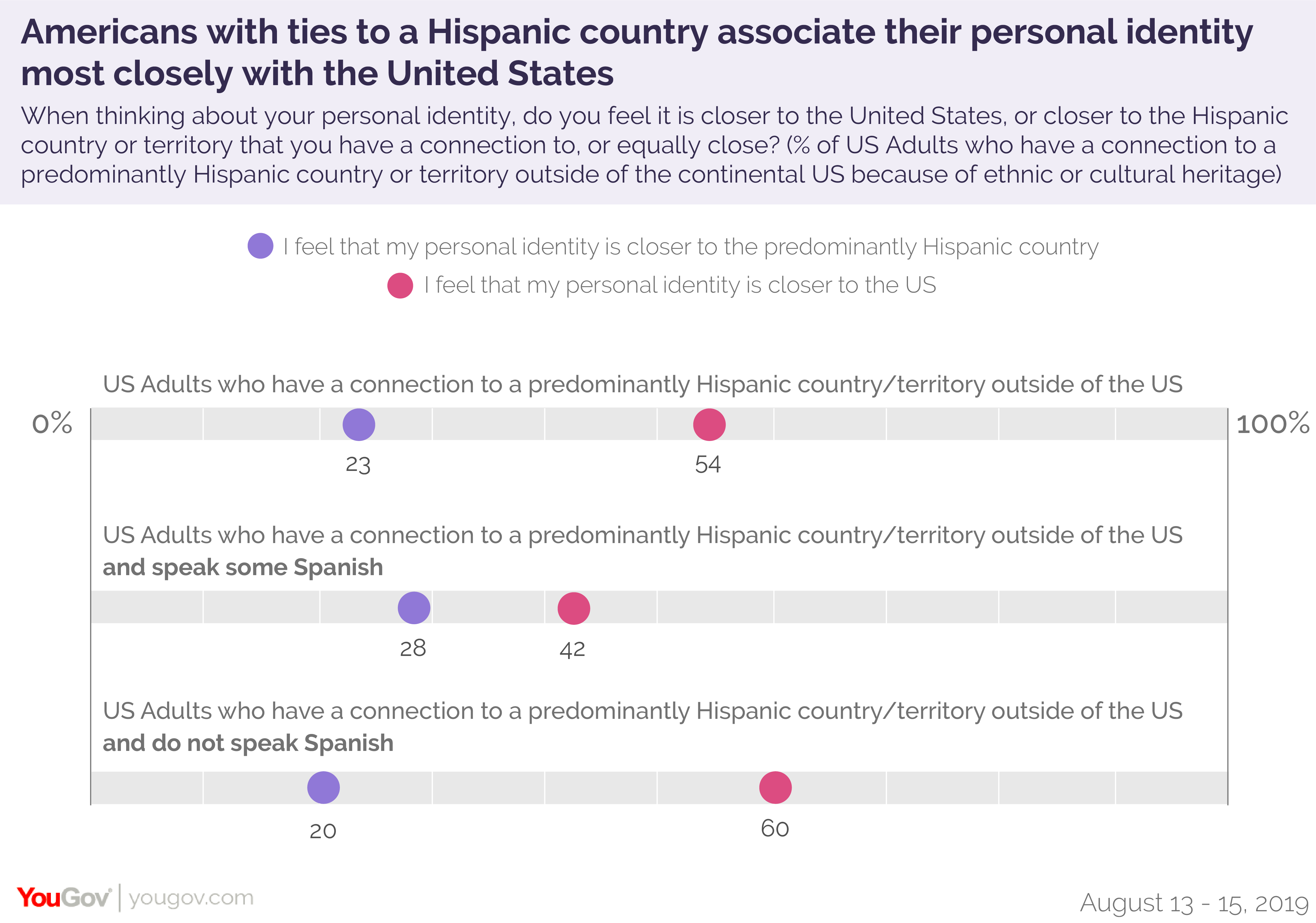A majority (54%) of adults that say they identify with a Hispanic country or territory outside of the United States say they more closely identify with America than the country to which they are connected, according to a new YouGov survey that focused on Hispanic and Latino identity.
Millennials are more likely than older generations to identify with a predominantly Hispanic country or territory outside the continental United States because of their own ethnic or cultural heritage. One in five (20%) Millennials have a connection to a primarily Hispanic area outside of America, followed by Gen X (12%) and Baby Boomers (6%).
This data emerges ahead of National Hispanic Heritage month, which is celebrated from September 15 to October 15. It shows that US adults with a connection to a Hispanic country say they identify with America more than the other nation, as well as emphasizes the importance among Spanish-speakers on remaining bilingual.
Generally, US adults who identify with a predominantly Hispanic country rate their connection to America as stronger than their connection to the other country. A majority of those Americans with a connection to a Hispanic country say their connection to America is “very strong” (57%) while just four in 10 (40%) rate their connection to the other country as “very strong.”
Adults who have ties to a Hispanic country and speak Spanish also indicate a closer relationship with America than with that Hispanic country. Among those who speak some Spanish, 42 percent identify closely with the United States, compared with 28 percent who say their personal identity is closer to the other nation. Among non-Spanish speakers who are connected to a Hispanic nation, 60 percent feel their personal identity is closer to the United States compared with 20 percent who identify more strongly with the Hispanic country.
According to the YouGov survey—which was conducted online in English—nearly two-thirds (63%) of US adults with ties to a Hispanic country who can also speak Spanish say it is “very important” for them to maintain their ability to speak Spanish. Another quarter (25%) of this group says it is “somewhat important” while just 12 percent say it is “not very important” or “not at all important.”
One in five (20%) Hispanic adults—regardless of whether they associate themselves with another country—speak Spanish primarily. One-third (34%) of Hispanic Americans speak Spanish and English equally, 19 percent speak English primarily but can speak Spanish and one quarter (27%) cannot speak Spanish. Among the Hispanic Americans who cannot speak Spanish, half (54%) say they are “not at all insecure” or “not very insecure” about not speaking Spanish, while 47% are “very insecure” or “somewhat insecure.”
Among all Hispanic Americans who speak at least some Spanish, nearly two-thirds (63%) say that it is very important to keep their ability to speak the language while 15 percent say it is not very or at all important.
See the full survey results from Hispanic Heritage month and sign up to be a part of the YouGov panel.
Methodology: Total unweighted sample size was 2,449 US adults, which contained 319 people who identify with a predominantly Hispanic country or territory outside the continental United States because of their own ethnic or cultural heritage. The figures have been weighted and are representative of all US adults (ages 18+). Interviews were conducted online in English between August 13 - 15, 2019.
Related: Is it pandering when 2020 presidential candidates try to speak Spanish?
Image: Getty












